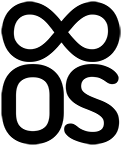Bodymind Operating Systems Workshop at Hyperwerk
In March 2018 we (Pedro Jardim, Dmitry Paranyushkin and Nathalie Abbot) conducted a 4-day ∞OS workshop at Hyperwerk School for Postindustrial Design on Building Organizational Bodymind Operating Systems.
The main objective of the workshop was to get the participants to:
- Try out the new patterns of behavior through physical practice and implement them in daily life and work;
- Get acquainted with various organizational models based on ∞OS principles;
- Use the techniques from agile development and the metaphor of an open-source operating system for individual and organizational re-programming;
- Learn how to learn in a different way, using the principle of portability for self-education: abstracting a methodology from one field in order to apply it in another.
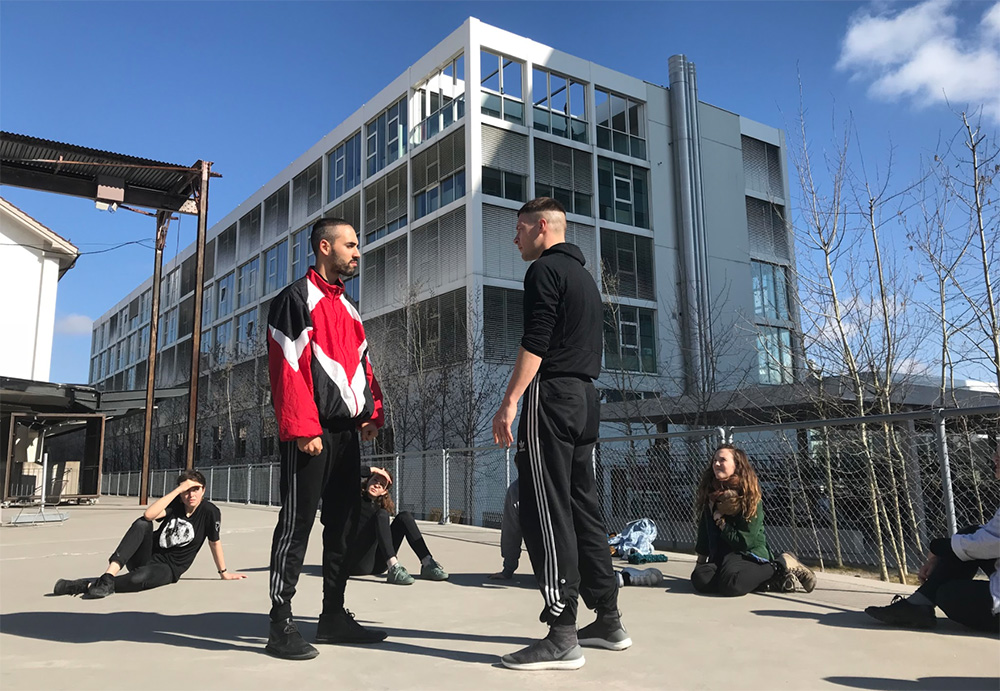
We decided to focus the course around daily physical practice activities. ∞OS teaching is based on physical metaphors. We believe that the process of learning is much more efficient, when it is understood / experienced through the body. Therefore, we structured our course so that we’d have at least 3 hours of physical training daily. During those sessions we shared different individual and group exercises that helped the participants to better understand some basic behavioral principles that are at the core of ∞OS as well as the more specific procedures, which bring those principles to life during physical practice.
The physical sections would be mixed with theoretical sessions, where we discussed the physical experience with the participants and looked into the different ways to apply this experience in other realms, outside of the physical practice, in work, in intersubjective relations, or in everyday life.
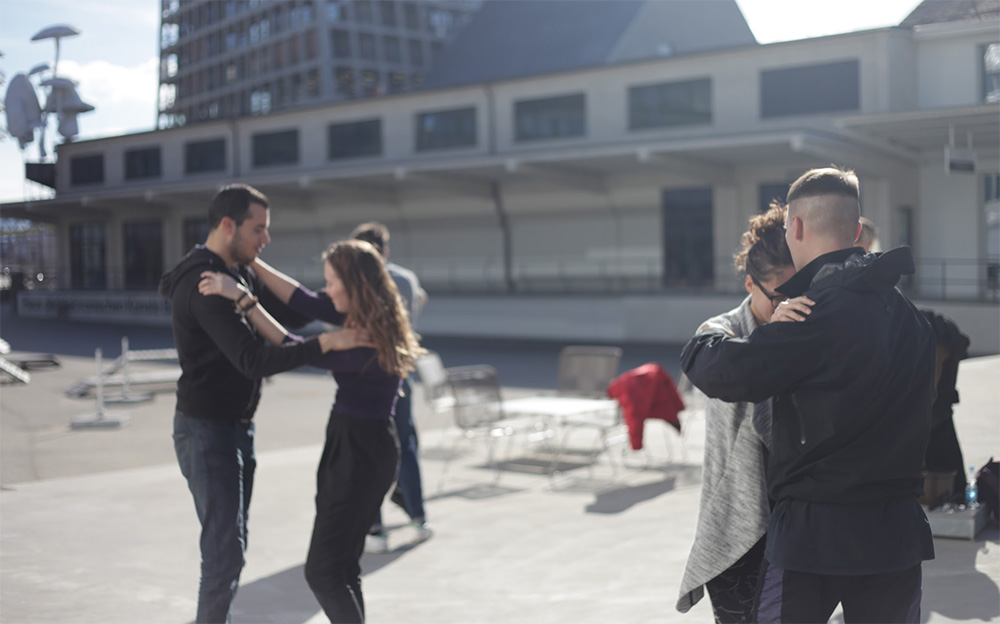
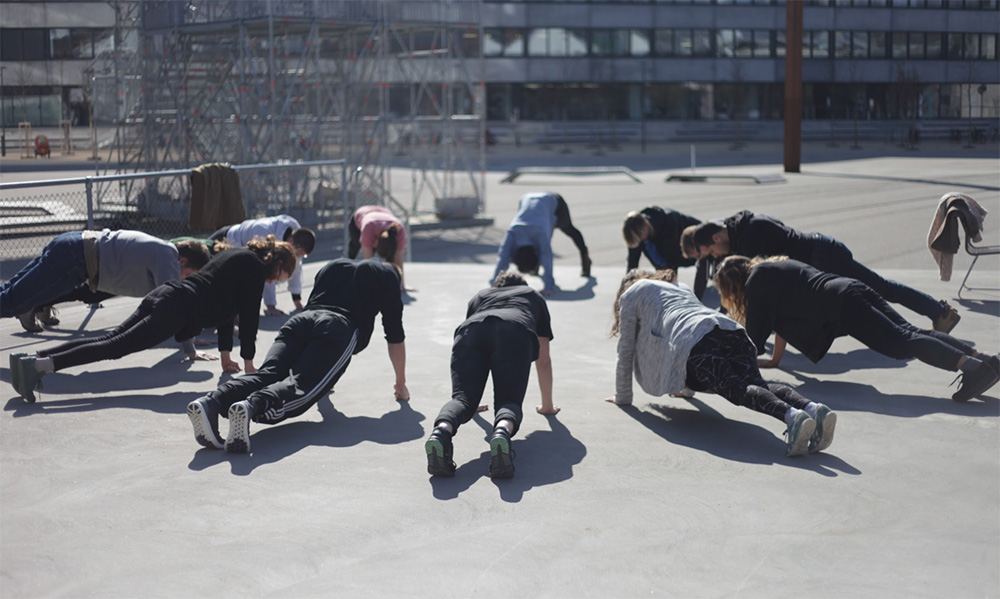
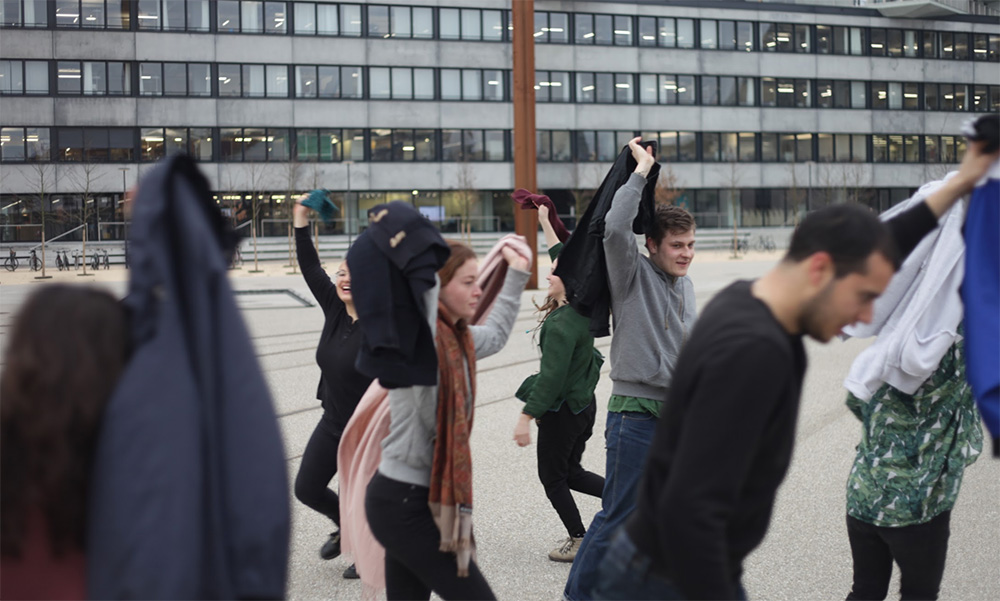
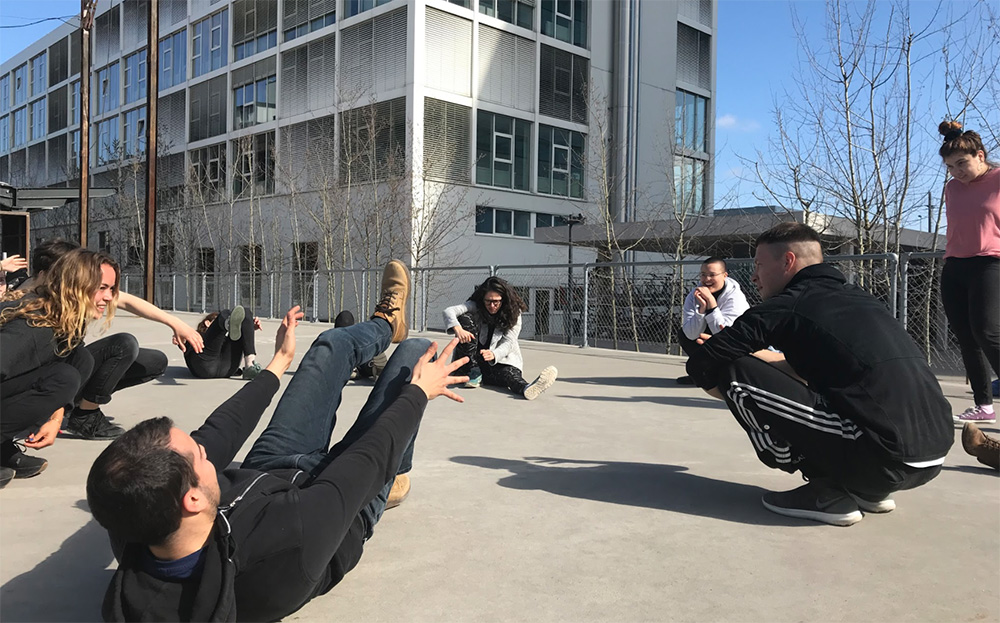
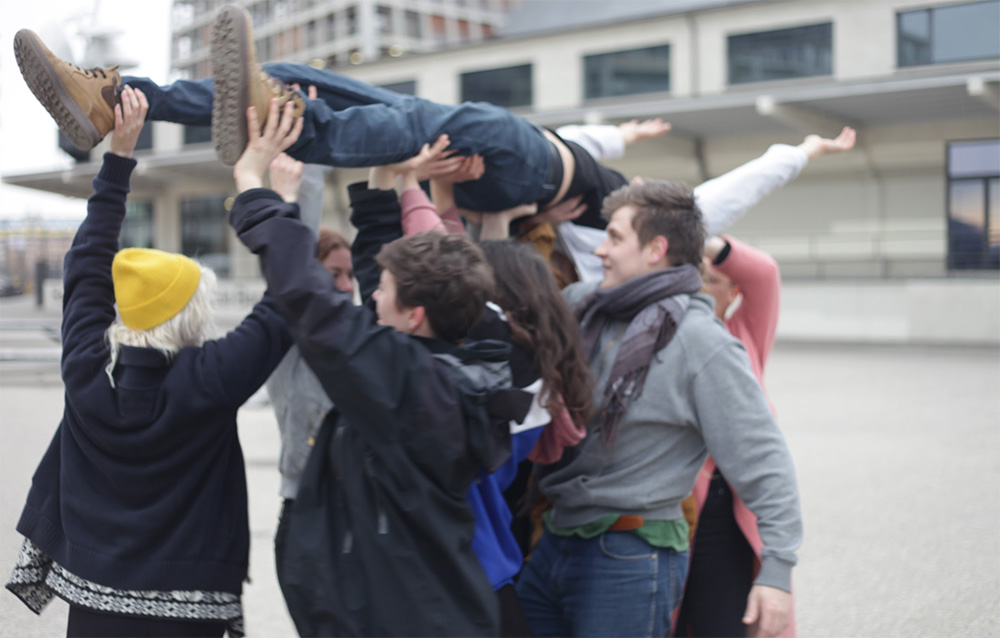
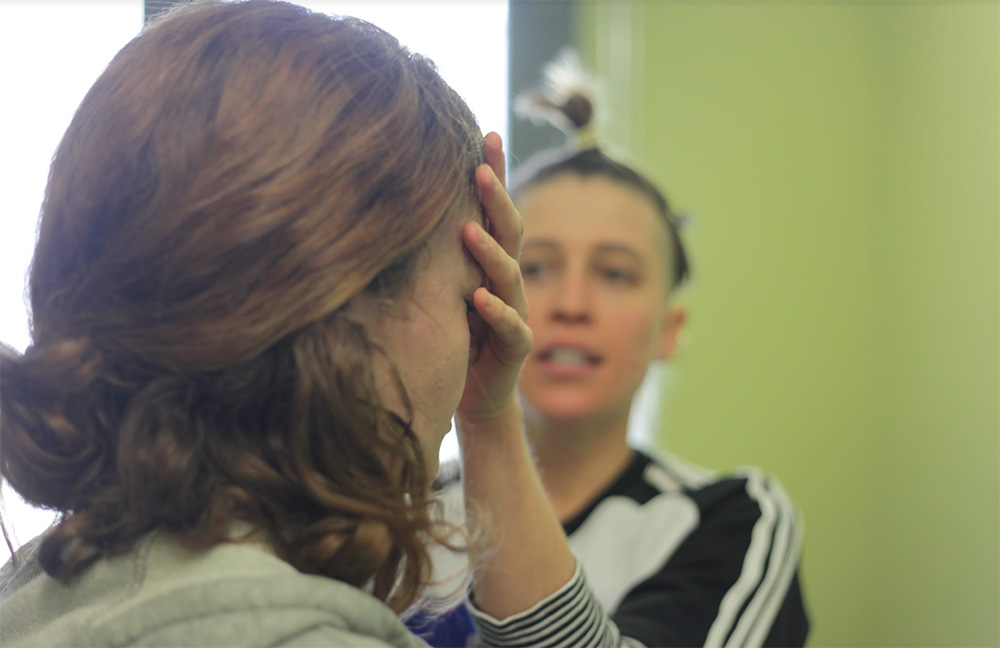
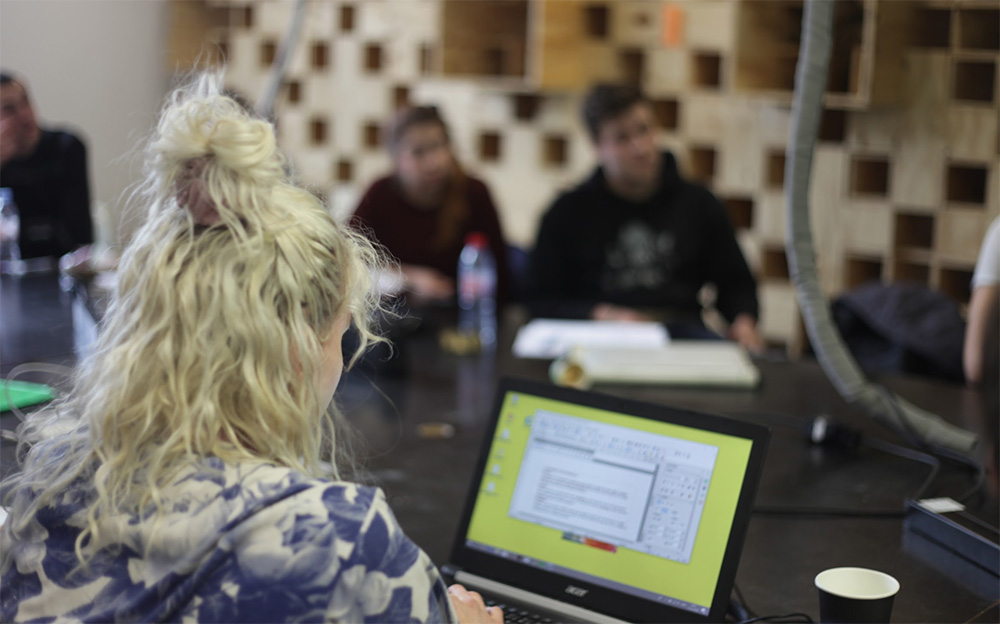
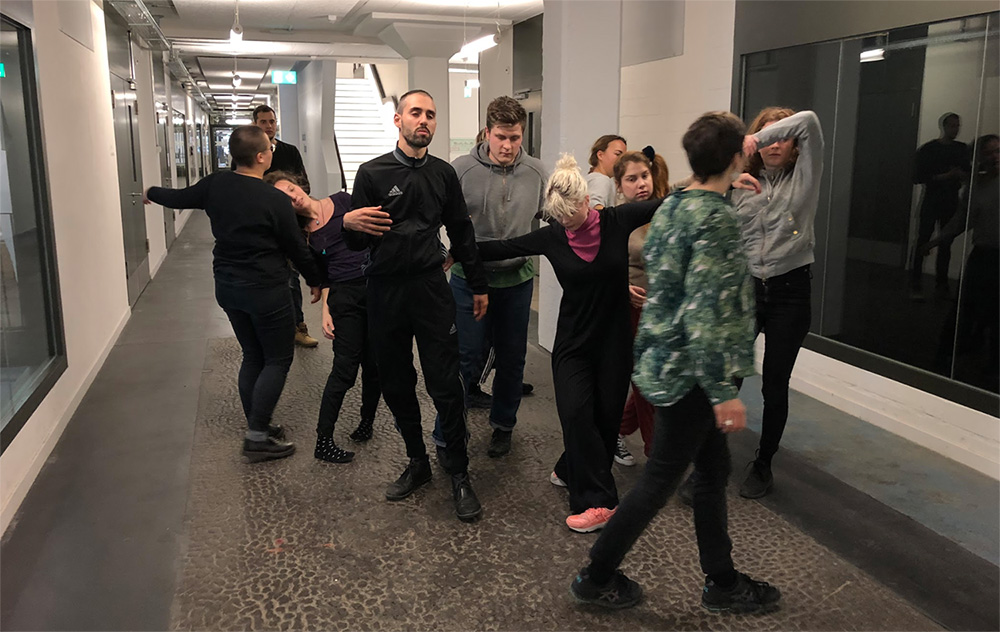
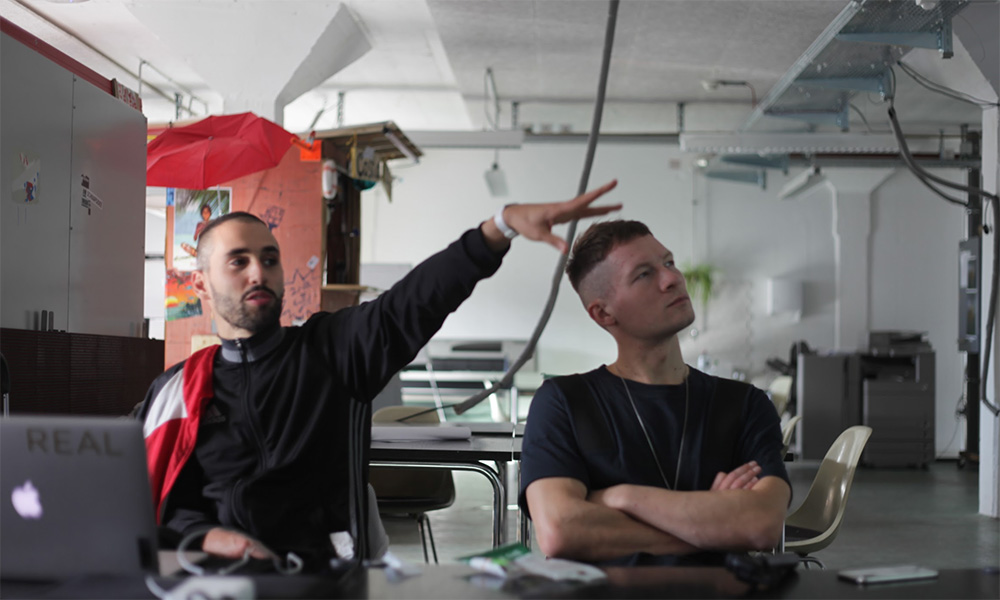
During the first day we introduced the principles of non-resistance (tensivity), adaptive fluidity and integrity. Various procedures from ∞OS practice (particularly the Assimilation procedure, Resilience procedure and Control Takeover procedure) help participants understand those principles very quickly using direct physical experience in their body. They also could experience how those principles can get translated directly into their everyday behavior and life (following the portability principle of ∞OS).
During the theoretical part we demonstrated various strategies derived from software programming and agile development, which could be applied to organizational management and self-organization.
We made a particular emphasis on iterative approach to the creative process: releasing frequent updates, obtaining feedback from the environment, implementing this feedback into the newer versions, having several perspectives at once — both a detailed view of detail and a general overview of the process. We drew some parallels between this approach, which is an integral part of ∞OS practice, and practices such as Design Thinking.
We also introduced the participants to the various methods of conflict resolution and group organization techniques based on ∞OS principles. Our approach is based on identifying the tensions that are present within a group and using them as opportunities for further development and evolution. These tensions should be aligned with the overall vector of organization development (e.g. mission, qualitative and quantitive objectives) in order to ensure both short-term (tactical) and long-term (strategical) development. Various procedures from ∞OS are used to highlight, process and resolve those tensions in order to transform them into the creative force propelling the organization and individuals even further. We drew some parallels between this approach and other organizational models, such as Holocracy. The main difference in case of ∞OS, however, is that it uses physical practice to develop synchronization patterns between the members of a group and that it offers a more precise methodology for role-shifting and variability (similar to Panarchy).
We concluded the workshop with a series of sessions where we invited the participants to develop their own operating systems based on the projects that they are involved in, including the basic principles, methodologies, and time-phased objectives. We then invited them to identify the potential problems and tensions inherent in their projects and integrate ∞OS approach in order to strategize the different way to transform those tensions into opportunities. The participants then presented their projects / operating systems to each other in order to obtain the feedback and make several iterations to improve their projects.
Photos by Natalie Abbot, Pedro Jardim and Dmitry Paranyushkin
Special thanks to Hyperwerk for inviting us and to all the amazing participants!



